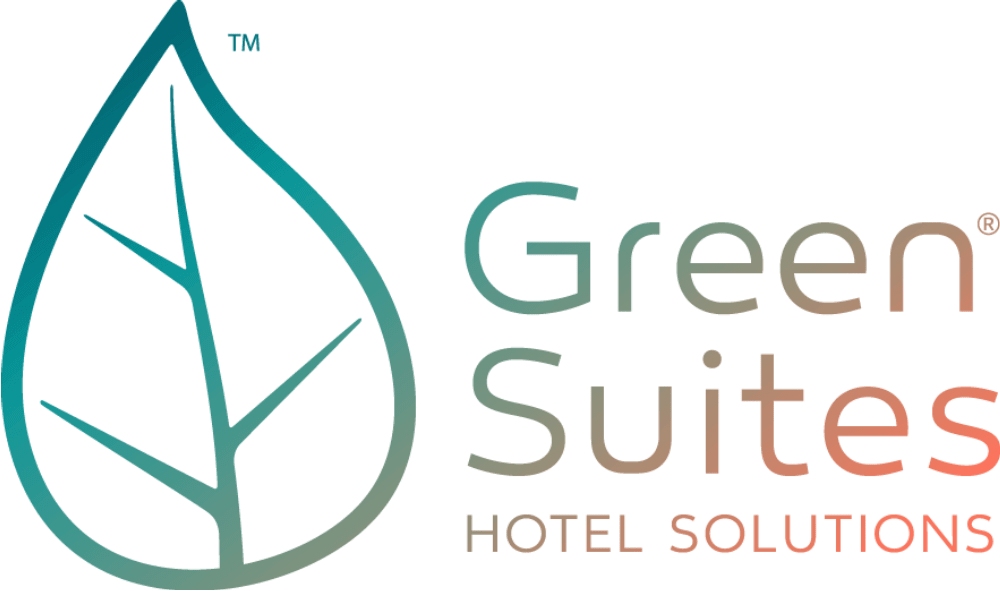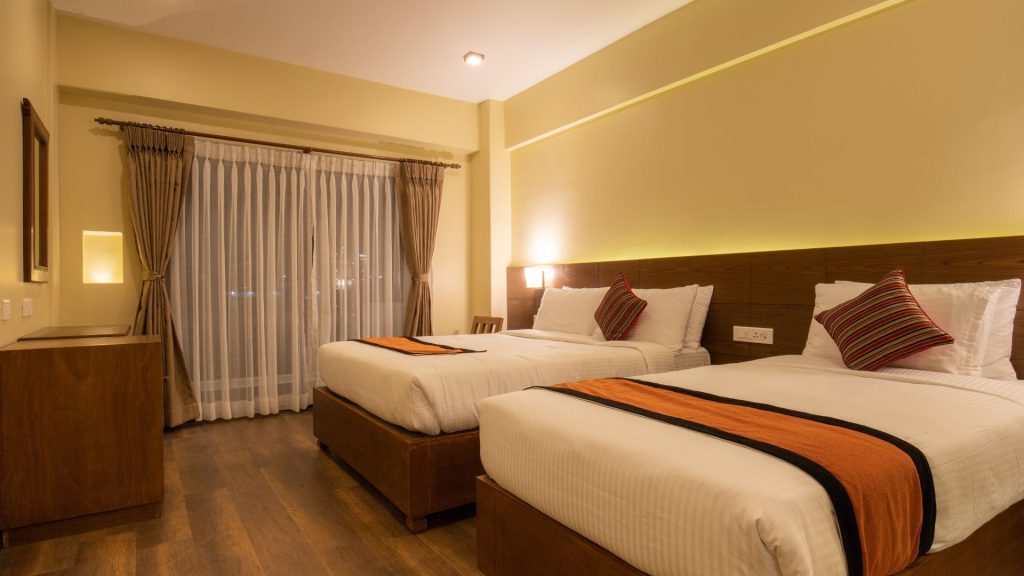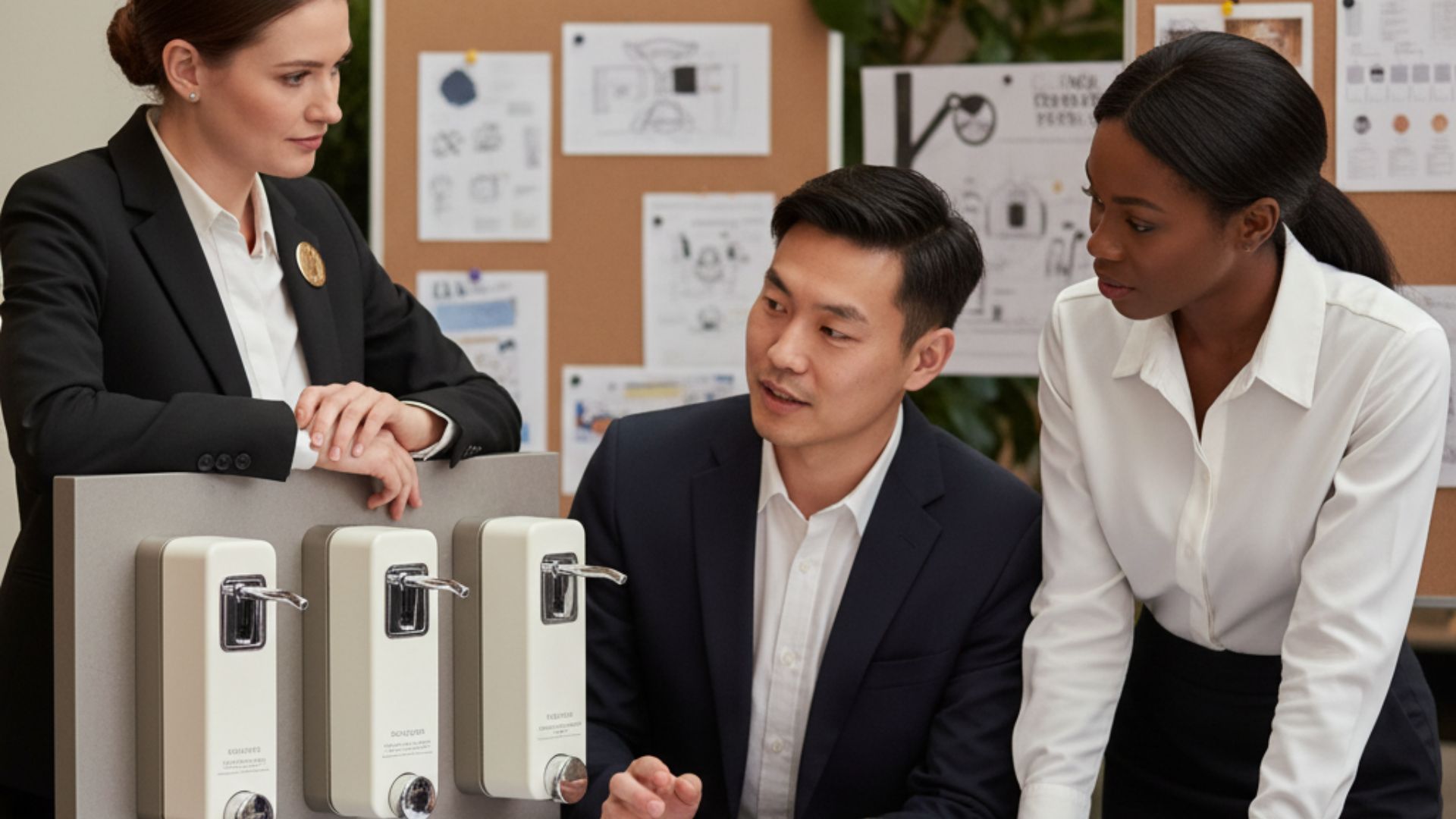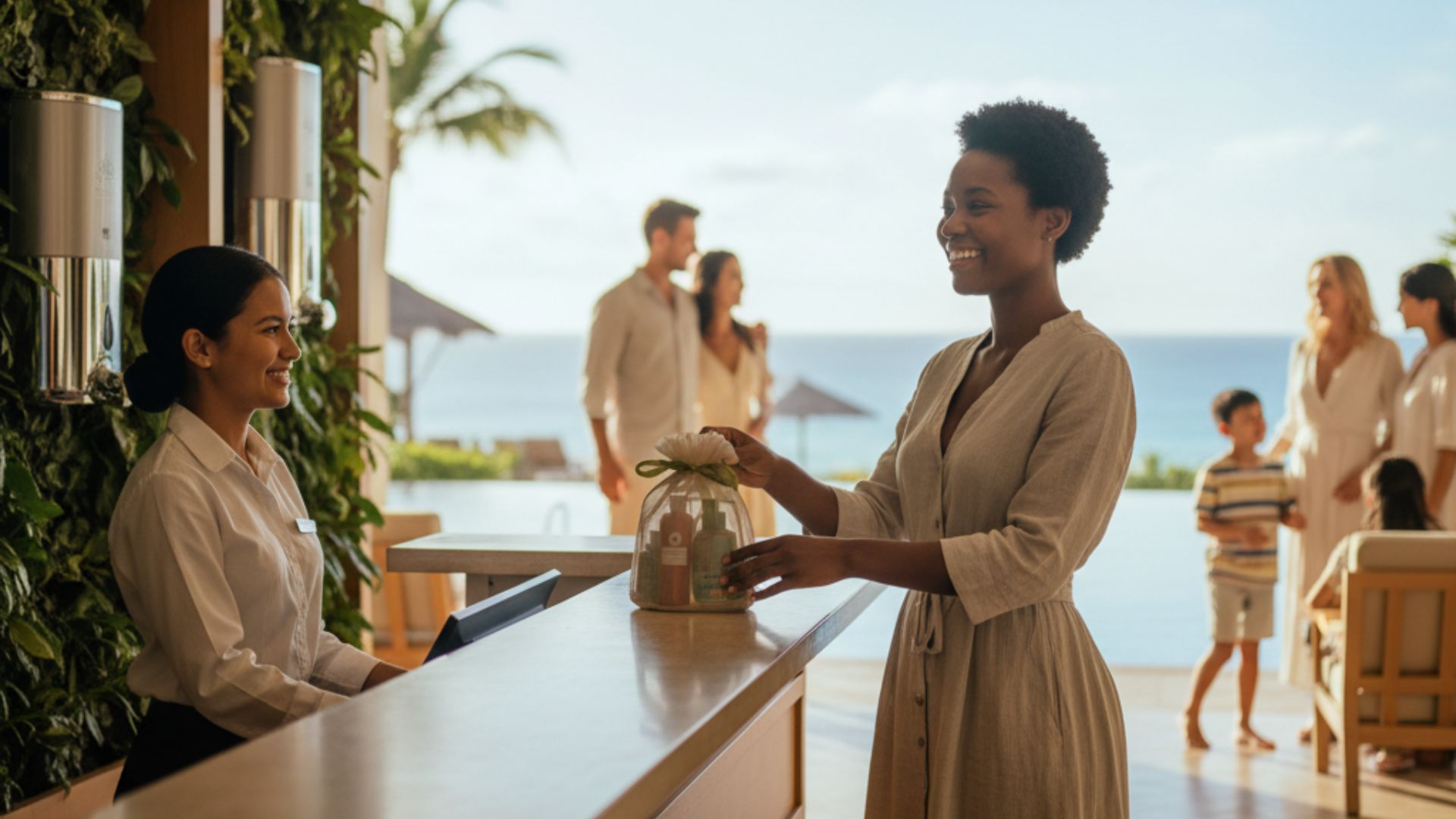Stepping into 2025, we’ve seen the hospitality industry continuing to evolve at a rapid
pace, responding to shifting consumer demands and emerging technologies. With travel
becoming more accessible due to advances in transportation and technology, the
challenge for hospitality properties is to stay ahead of guest expectations.
In an increasingly competitive market, hotels must embrace trends such as wellness,
touchpoint personalization, customizable services, and flexible work accommodations to
stay relevant. One company leading the way in promoting these changes is Green
Suites Hotel Solutions, which is committed to eco-friendly hotel amenities like plastic-
free shampoo and conditioner dispensers, helping hotels align with the rising trend of
sustainability and customization. Contact us today.
Wellness: A Priority for Modern Travelers
In recent years, wellness has surged in popularity, and it shows no signs of slowing
down. More travelers are prioritizing their health during their trips, seeking properties
that offer wellness amenities. This has led to a rise in wellness-focused features such
as in-room air purifiers, circadian lighting to improve sleep, and meditation apps to
enhance relaxation.
Additionally, smaller hotels have incorporated mini-gyms and wellness rooms, while
larger properties have started to offer full wellness retreats during slower seasons.
These initiatives don’t just appeal to health-conscious guests but also create unique,
memorable experiences that keep customers coming back.
For hotels looking to stay competitive, integrating wellness offerings isn’t just an
option—it is essential. This trend ties into the growing demand for customized
amenities, where guests can choose services that align with their personal wellness
goals.
Green Suites, for example, provides eco-friendly hotel bathroom amenities, like their
sustainable, plastic-free shampoo and conditioner dispensers, which contribute to a
healthier environment and enhance the guest experience. By offering products that
align with wellness and sustainability values, hotels can differentiate themselves and
cater to guests’ desire for green, health-focused travel.
The Rise of Touchpoint Personalization
With the help of artificial intelligence and data analytics, touchpoint personalization has
emerged as one of the most influential trends in hospitality. By harnessing data, hotels
can now tailor the guest experience to an individual’s preferences. From suggesting
customized dining options based on previous meals to offering personalized activity
recommendations, the goal is to make every guest’s stay feel special and curated.
Studies show that approximately 75% of travelers prefer a personalized experience,
making this trend one that will continue to grow in 2025. AI helps streamline this
process by anticipating guest needs before they even ask. For example, smart room
technologies allow guests to adjust temperature, lighting, and entertainment
preferences with ease, creating a personalized in-room experience.
Hotels are also customizing amenities to fit guests’ preferences. For instance, a guest
might be offered a selection of eco-friendly hotel bath amenities, like shampoos and
conditioners, as part of their room’s services, giving them the freedom to choose
products that align with their personal values and preferences.
This level of personalization is not only convenient but also deepens guest loyalty, as it
shows that the hotel truly understands and cares about their needs. Green Suites’
dispenser amenities are a perfect example of this trend, allowing hotels to offer
sustainable and customizable amenity options that contribute to both personalization
and sustainability.
Customization of Services: Giving Guests More Control
Gone are the days of one-size-fits-all hotel packages. Today’s travelers want more
control over their experiences, seeking customizable services that allow them to pay
only for what they need. Traditional services like Wi-Fi, housekeeping, and breakfast are
now often available as add-ons, giving guests the flexibility to choose what fits their
preferences and budget.
For example, a guest might opt for an upgraded room or choose to purchase a wellness
package that includes spa services and yoga classes. This model not only improves
guest satisfaction but also encourages repeat business, as it offers guests the freedom
to create the ideal stay for themselves.
Hotels can go even further by customizing their amenities to fit the unique needs of
each guest. For instance, a traveler focused on eco-friendly living might appreciate
sustainable hotel bath amenities, such as Green Suites’ plastic-free shampoo and
This customization is not just about offering a higher level of service but about giving
guests the power to design an experience that suits their personal needs. This shift
toward customization is not just a passing trend but a long-term change in how
hospitality businesses approach guest service.
The Growth of Flexible Work Accommodations
The rise of remote work is transforming the way people travel, as more individuals are
working from anywhere and for longer periods of time. This shift has created a need for
accommodations that cater to remote workers who require quiet, comfortable, and
functional spaces to work from. As a result, many hotels are adapting by offering flexible
workspaces with desks, tables, and quiet zones.
For remote workers, hotel stays are no longer just about comfort—they also need
functionality. Properties offering dedicated workspaces, high-speed internet, and other
business amenities are positioning themselves as ideal spots for extended stays. Hotels
with remote work accommodations provide a productive environment that meets the
needs of this growing segment of travelers.
For instance, offering flexible room options where guests can work and relax in the
same space can be a major draw for those on long-term assignments or business trips.
At Green Suites, sustainability plays a key role in these flexible offerings. The
company’s eco-friendly approach to hotel bathroom amenities helps guests maintain
their focus on work while also promoting green practices. For example, by providing
eco-conscious hotel shower dispensers for bathroom products, hotels can appeal to
remote workers who are also environmentally conscious. Such offerings can enhance
the work-from-hotel experience and align with the growing trend of sustainable travel.
Staying Competitive with Customization and Sustainability
As the hospitality industry continues to evolve, customization of services and amenities
will remain at the forefront of guest expectations. Guests are no longer satisfied with
standard offerings—they want a personalized, flexible experience that suits their unique
needs. Whether it’s customized amenities, wellness packages, or eco-friendly products
like Green Suites’ sustainable shampoo and conditioner dispensers, hotels must adapt
to these changing demands to stay competitive.
The growing desire for personalization, wellness, and eco-conscious choices provides
hotels with an opportunity to enhance guest satisfaction and build lasting loyalty. By
integrating sustainable practices and customizable services, hotels can create
memorable experiences that align with the preferences and values of modern travelers.
As we move further into 2025, embracing these trends will be key to success in the
ever-evolving hospitality landscape. Learn more today.




